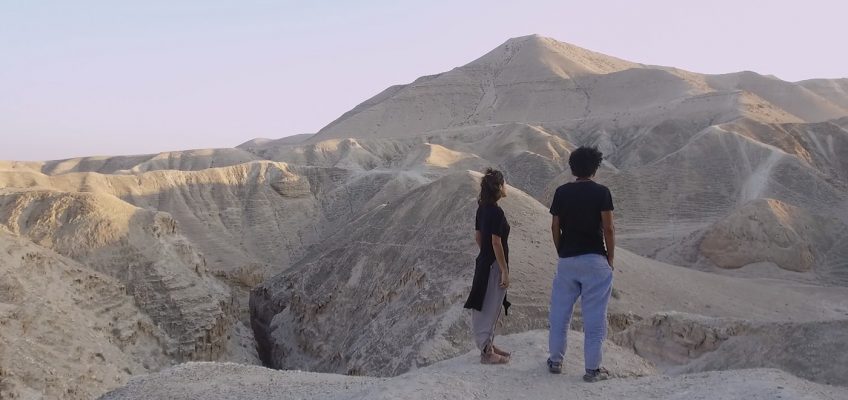The Twin Cities Jewish Film Festival, an annual event now in its 31st year, begins Oct. 23 and runs through Nov. 2.
Most screenings take place at the Minnesota Jewish Community Center’s Sabes Center in St. Louis Park and the Capp Center in St. Paul, but screenings are also scheduled at other venues around Minneapolis including the Riverview Theater, the Main Cinema and the Minneapolis Institute of Art. Tickets and showtimes are available at tcjff.eventive.org.
In total, the festival encompasses 47 films telling a range of fictional and true stories. A couple, like Minnesota-born Joy Sela’s debut documentary “The Other,” respond to ongoing conflicts in Israel and Palestinian territories. Many others focus on the wide range of the global Jewish experience, including a biopic on gay Jewish Beatles manager Brian Epstein; a modern Hungarian family drama called “All About the Levkoviches”; and “Days Between Rest,” a documentary short focusing on Grammy-nominated Ugandan Jewish singer Rachel Namadosi. On Halloween, there’s a block of horror shorts, including some in Yiddish.
Alongside Sela, other Minnesota artists and projects are well represented, too. The festival’s lineup includes local filmmaker Michael Greenberg’s short film “The Combination”; “The True Story of Tamara de Lempicka & the Art of Survival,” a documentary inspired by a play written by Minnesota playwright Carson Kreitzer; and a brief preview of “Milkweed,” billed as the first feature-length animation created here that’s slated for completion in 2027.
Sela, whose father is Israeli and mother is American, began filming “The Other” in 2017, not expecting that it would become a documentary. Originally, through a nonprofit she founded, she was doing performance art-style interventions aimed at bringing opposing viewpoints in conversation with one another, but when she brought the work to Israel, she quickly realized people were eager to tell stories that went beyond her initial project’s scope. So she began listening, and recording.
Growing up, Sela said, she did not have much contact with Palestinian people or perspectives, but these initial recordings sparked a multiyear journey through Israel, the West Bank and her own sense of “the other.” The ultimate film focuses on personal stories of people like Ahmed Helou from the Gaza Strip and Maoz Inon from Israel who, despite trauma — more than 60 members of Helou’s family in Gaza have been killed; Inon’s parents were both killed during Hamas attacks in Israel on Oct. 7, 2023 — are building these bridges across communities.
For Sela herself, “it took many years to confront the conditioning that comes from growing up on one of these sides and consider how that shaped my understanding,” she said. “The people (in the film) who are doing this courageous work coming into relationship with each other, they’re coming from living in occupation or unequal systems, or from having lost a child, or having experienced or enacted violence and chosen nonviolence now. These are very complicated and difficult, extreme things to go through, but sometimes they bring about the most powerful transformation.”
Sela continued filming through 2024, including following up with all her interviewees amid the current Israel-Hamas war that began Oct. 7, 2023. Since that day, when Hamas also captured approximately 250 Israeli hostages, tens of thousands of Palestinians in Gaza have been killed or displaced, sparking worldwide protests. Approximately 67,000 Palestinians and approximately 1,200 Israelis have been killed since Oct. 7, according to United Nations figures.
In such a tense environment, asking people — especially Palestinian women — to share vulnerable stories on camera is not easy, Sela said. She’s built up deep trust over more than half a decade and has worked with her interview subjects to ensure the documentary portrays them authentically without putting them in additional danger, she said.
“We just hope it’s a way to start rehumanizing the conversation and hopefully engaging people in ways we can be constructive together,” she said.
Related Articles
What to stream: Music biopics
‘Black Phone 2’ review: Sequel different from, not better than first flick
Lakeville to welcome largest IMAX screen in Minnesota
‘John Candy: I Like Me’ review: Loving portrait predictable but potent
‘Tron: Ares’ review: Dazzling looks meet so-so story in series’ third entry


Leave a Reply